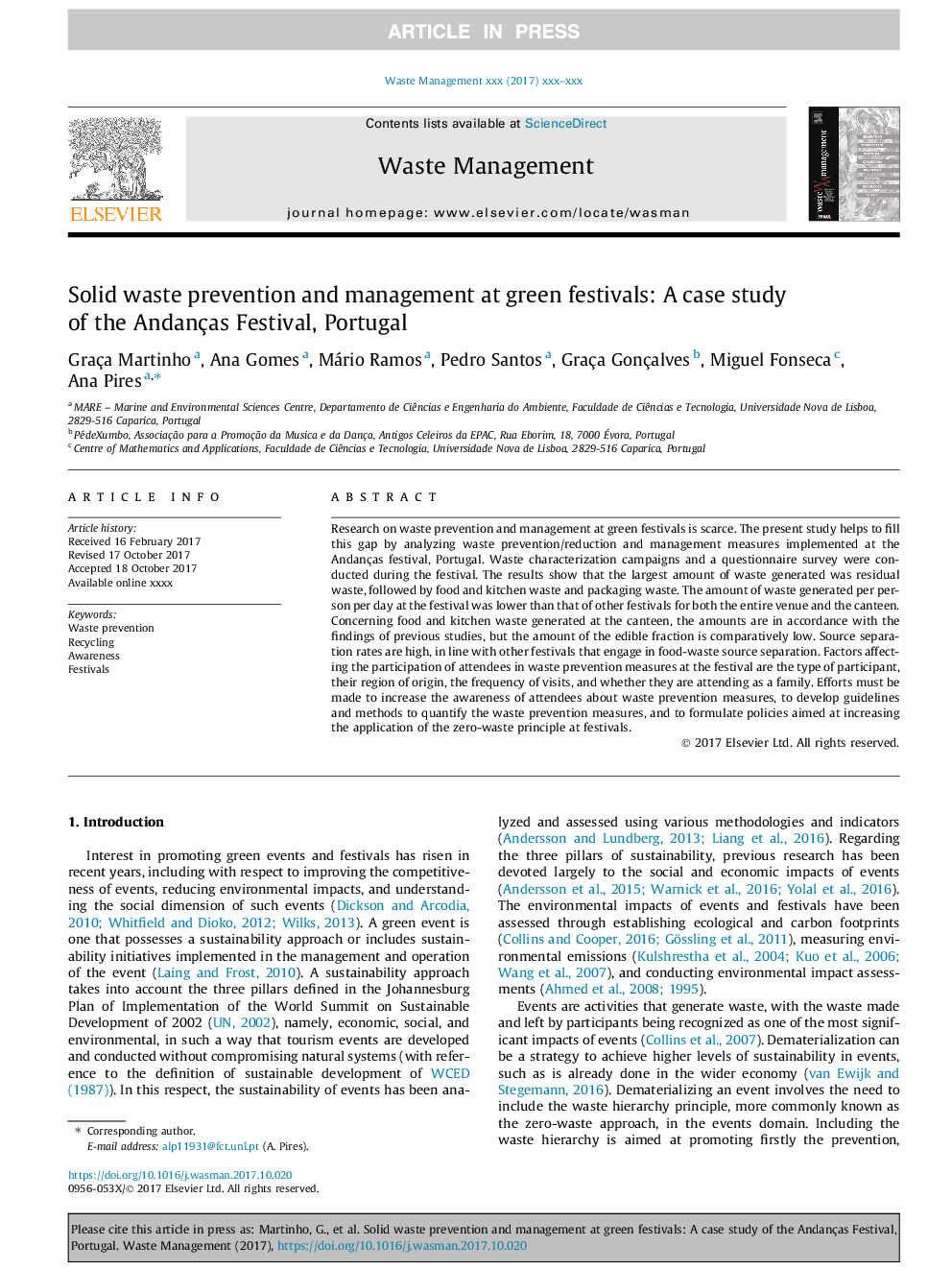| Article ID | Journal | Published Year | Pages | File Type |
|---|---|---|---|---|
| 8870174 | Waste Management | 2018 | 9 Pages |
Abstract
Research on waste prevention and management at green festivals is scarce. The present study helps to fill this gap by analyzing waste prevention/reduction and management measures implemented at the Andanças festival, Portugal. Waste characterization campaigns and a questionnaire survey were conducted during the festival. The results show that the largest amount of waste generated was residual waste, followed by food and kitchen waste and packaging waste. The amount of waste generated per person per day at the festival was lower than that of other festivals for both the entire venue and the canteen. Concerning food and kitchen waste generated at the canteen, the amounts are in accordance with the findings of previous studies, but the amount of the edible fraction is comparatively low. Source separation rates are high, in line with other festivals that engage in food-waste source separation. Factors affecting the participation of attendees in waste prevention measures at the festival are the type of participant, their region of origin, the frequency of visits, and whether they are attending as a family. Efforts must be made to increase the awareness of attendees about waste prevention measures, to develop guidelines and methods to quantify the waste prevention measures, and to formulate policies aimed at increasing the application of the zero-waste principle at festivals.
Related Topics
Physical Sciences and Engineering
Earth and Planetary Sciences
Geotechnical Engineering and Engineering Geology
Authors
Graça Martinho, Ana Gomes, Mário Ramos, Pedro Santos, Graça Gonçalves, Miguel Fonseca, Ana Pires,
